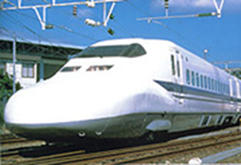Aluminum alloys are lightweight (specific gravity 2.7, which is 1/3 of iron), and their strength is improved to 600MPa (60kgf/mm2) by alloying. Having good workability, corrosion resistance, thermal conductivity, and light reflectivity, they are frequently used for aircraft, automobiles, and other transportation equipment, architectural members, heat exchangers, and chemical industry members. Furthermore, with the electrical conductivity 60% or more of copper, they are suitable as electrical materials. However, since aluminum alloys themselves also have shortcomings, such as being easily scratched and being low in wear resistance, hard electroless nickel plating is performed to make up for the shortcomings.
| Classification | Type | Features | Uses |
|---|---|---|---|
| Non-heat treated type | (1) Pure Al-based Six types from A1050P to A1200P A1050(99.5%Al),A110(99%Al) (2) Al-Mn-based Six types from A3003P to A3105P A3003(Al-1.2Mn) (3) Al-Mg系 Ten types from A5005P to P5086P A5056(Al-5Mg), A5086(Al-4Mg) |
- Strength 80MPa (8kgf/mm2) - Strength 110MPa (11kgf/mm2) - Strength 200MPa (20kgf/mm2) |
- Impact cases, heatsinks - Aluminum cans, kitchen instruments, panels, piping materials - Camera parts, copiers, structural materials, magnetic disks |
| Heat-treated type | (1) Al-Cu-based alloy materials Six types from A2004P to A2024P A2024(Al-4.5Cu-1.5Mg) (2) Al-Mg-Si-based A6061(Al-1Mg-0.6Si) (3) Al-Zn-Mg-based A7000-based A7075(Al-5.6Zn-2.5Mg-1.6Cu) A7N01(Al-4.5Zn-1.5Mg) |
- Duralumin, super duralumin (quench and temper T6 treatment) - Age hardening treatment, corrosion resistance, strength - Extra super duralumin, high strength |
- Aircraft, transportation equipment, machine parts - Sashes, motorcycle parts, sports gear - Aircraft structural members, Shinkansen, train cars, sports gear |

Aluminum-made Shinkansen “Nozomi”
Types of plating